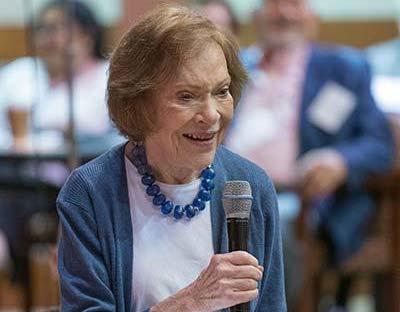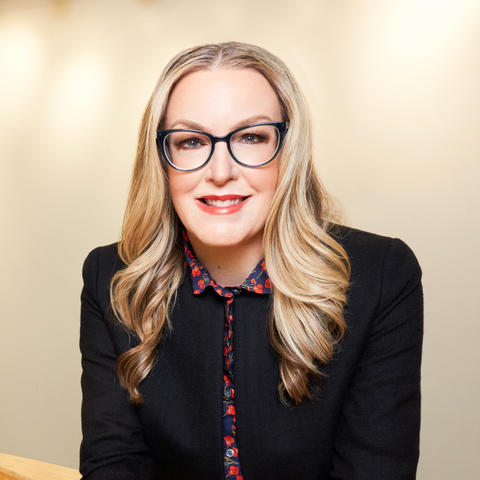
Caption
Rosalynn Carter speaks at the 24th annual Rosalynn Carter Georgia Mental Health Forum at the Carter Center in Atlanta in May 2019. The forum, established in 1995, is held each May to address a timely mental health policy issue facing the state.
Credit: The Carter Center


